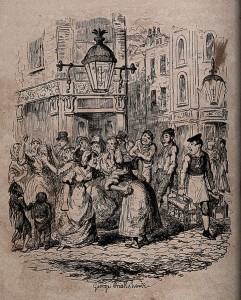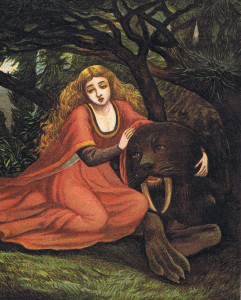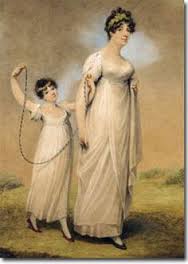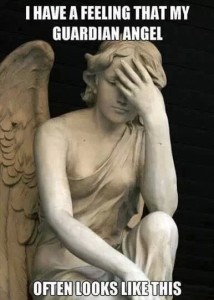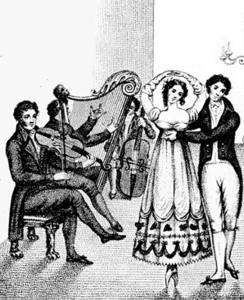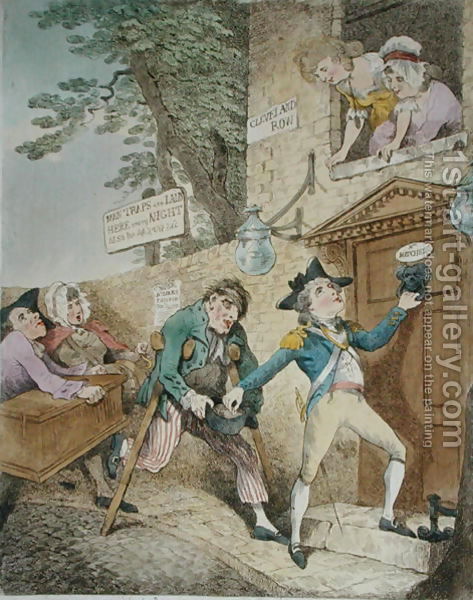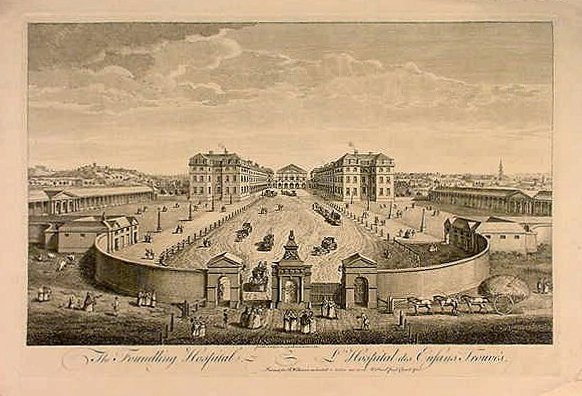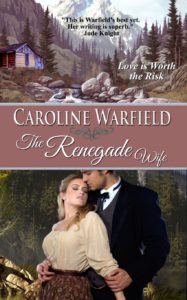 Today at Risky Regencies, we are delighted to have Caroline Warfield as our guest! Caroline has a book giveaway for you and a fascinating glimpse of a Canadian setting used in her new release, The Renegade Wife. Her new post-Regency series follows the children of characters introduced in her first series. To learn more, please read on!
Today at Risky Regencies, we are delighted to have Caroline Warfield as our guest! Caroline has a book giveaway for you and a fascinating glimpse of a Canadian setting used in her new release, The Renegade Wife. Her new post-Regency series follows the children of characters introduced in her first series. To learn more, please read on!
Traveler, would-be adventurer, librarian, technology manager—Caroline Warfield has been many things, but above all a romantic.  She is now a writer of historical romance, enamored of owls, books, history, and beautiful gardens, who sits in an office surrounded by windows and lets her characters lead her to adventures in England and the far flung corners of the British Empire. She nudges them to explore the riskiest territory of all, the human heart.
She is now a writer of historical romance, enamored of owls, books, history, and beautiful gardens, who sits in an office surrounded by windows and lets her characters lead her to adventures in England and the far flung corners of the British Empire. She nudges them to explore the riskiest territory of all, the human heart.
Children of Empire
Raised with all the privilege of the English aristocracy, forged on the edges of the British Empire, men and woman of the early Victorian age seek their own destiny and make their mark on history. The heroes and heroines of Caroline’s Dangerous Series overcame challenges even after their happy ending. Their children seek their own happiness in distant lands in Children of Empire.
Caroline will give a Kindle copy of the winner’s choice of Dangerous Works or Dangerous Secrets to one randomly selected person who comments.
Book 1 in the new series is The Renegade Wife, which releases on October 12. Betrayed by his cousin and the woman he loved, Rand Wheatly fled England, his dreams of a loving family shattered. He clings to his solitude in an isolated cabin in Upper Canada. Returning from a business trip, he finds a widow and two children squatting in his house. He wants them gone, but his heart is not as hard as he likes to pretend. Meggy Blair harbors a secret, and she’ll do whatever it takes to keep her children safe. She doesn’t expect to find shelter with a quiet, solitary man, a man who lowers his defensive walls enough to let Meggy and her children in.
Their idyllic interlude is shattered when Meggy’s brutal husband appears to claim his children. She isn’t a widow, but a wife, a woman who betrayed the man she was supposed to love, just as Rand’s sweetheart betrayed him. He soon discovers why Meggy is on the run, but time is running out. To save them all, Rand must return and face his demons.
Caroline says: “When my Dangerous Series came to an end, and I looked around for my next project, I realized that I had populated my earlier books with young people who would grow up and need to search for their own happiness. A quick look at timelines of English history showed me that I would be moving into a really rich period of social upheaval and empire building. With it came exotic locations, something I particularly value. One wearies of the London drawing room after a while. The result was not just one book, but a whole new series. I named it Children of Empire.
The first books take place during the reign of William IV, the time in between the Georgian and Victorian eras. The Reform Crisis, social upheaval, growing interest in the Canadian timber industry, the expansion of the East India company, and the seeds of the First Opium War all lurk in the background of the first three books.
One major treat in researching The Renegade Wife was learning about the building of Rideau Canal. The story takes place months after the completion of the canal, certainly a wonder when it was built, and now a UNESCO World Heritage Site. My characters travel the Rideau watershed and visit Bytown, now called Ottawa.
I took the opportunity to go take a look, and the locks at Ottawa—still functioning after 180 years—astounded me. So did the whole length of locks, dams, and blockhouses, all built to defend the Canadas (as the provinces were known in 1832) from those pesky Americans down south. ”  (1827 Commissariat Building, shown behind me in the photo, is now the Bytown museum.)
(1827 Commissariat Building, shown behind me in the photo, is now the Bytown museum.)
Do you enjoy following characters into the post-Regency era and more exotic locations of the British Empire? Have you ever been to Ottawa, or visited the Rideau Canal or the Bytown museum? Post a comment to be entered into the drawing for Caroline’s giveaway!
A brief excerpt from The Renegade Wife:
She pushed away from the door. “If you’re finished, I’ll clear up your dishes.
“Damn it woman, I fend for myself here.” He looked her up and down. He noticed her deep blue eyes, midnight black hair, and dusky skin. “What are you? Gypsy? Is that where you learned how to diddle a man out of his belongings?”
She drew her back up straight and squared her shoulders. The gesture pulled her dress tight across obviously ample breasts.
There’s a practiced enticement. She’s in for a surprise if she thinks that trick will work on me.
Chin high, she met his eyes without flinching. “My grandmother is Ojibwa, my father was French, and my husband was a Scot. You can despise whichever one of those your English heart chooses, or all of them, but I am not a thief.”
She grabbed her skirt and took a step toward the door. “Do fend for yourself. We’ll leave as soon as we can.”
“I’ll decide when you’re a thief,” he snarled, bringing her to a halt. “It’s my house.”
For (pre-order) purchase on Amazon. https://www.amazon.com/Renegade-Wife-Children-Empire-Book-ebook/dp/B01LY7IRT6/
Also check out Caroline online:
Website and Blog http://www.carolinewarfield.com/
Facebook https://www.facebook.com/carolinewarfield7
Twitter @CaroWarfield
There’s also a Pinterest Board for The Renegade Wife! http://bit.ly/2aHWOr6
Please leave a comment, to be entered in the giveaway.
Thanks for visiting with us today, Caroline!






